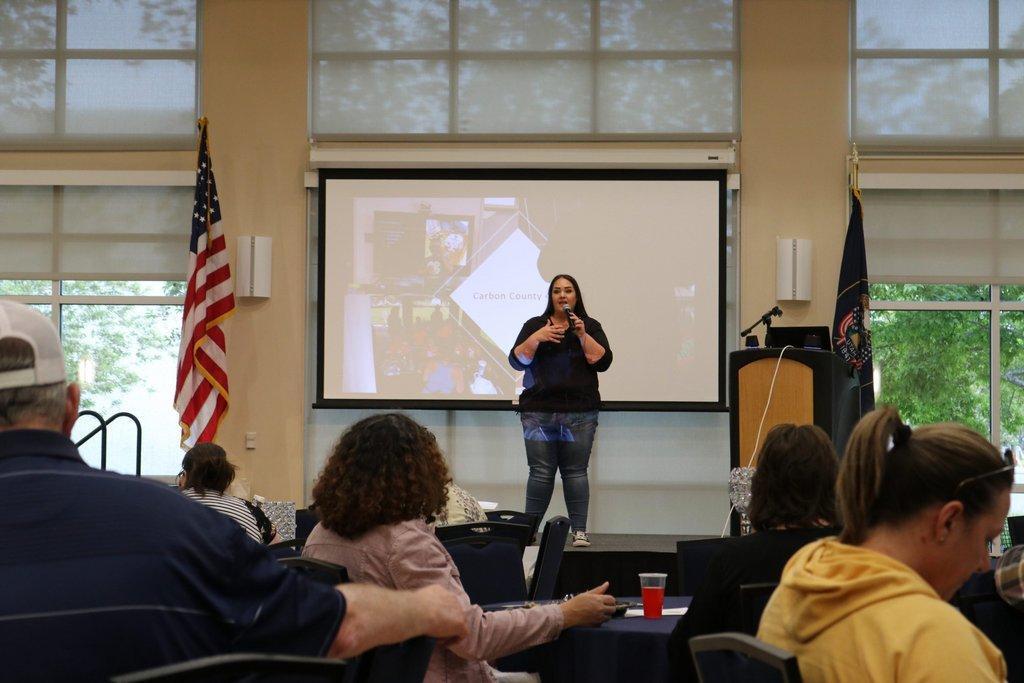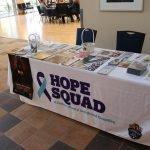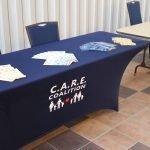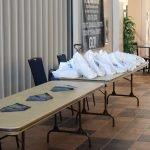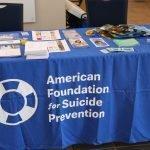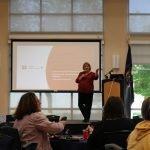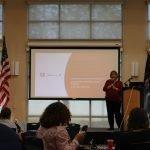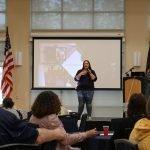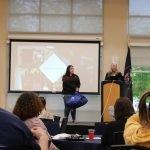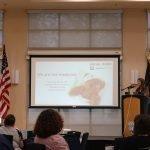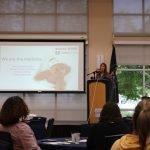A community education dinner focusing primarily on adverse childhood experiences (ACEs) was hosted at the Utah State University Eastern Jennifer Leavitt Student Center on Thursday evening.
Amanda McIntosh of the HOPE Squad of Carbon, Emery and Grand counties, as well as the Southeast Utah Health Department (SEUHD), kicked off the event. She welcomed everyone and began by thanking all for coming out and joining them for the dinner. She stated that it will help build resiliency through conversation and exercises that can be done with children to prevent ACEs.
According to the Centers for Disease Control, adverse childhood experiences are potentially traumatic events that occur in childhood (0-17 years). Examples include experiencing violence, abuse or neglect, witnessing violence in the home or community, and having a family member attempt or die by suicide.
“ACEs are linked to chronic health problems, mental illness and substance use problems in adolescence and adulthood,” the CDC shared. “ACEs can also negatively impact education, job opportunities and earning potential.”
McIntosh then turned the time to Cristina Pay, USU Extension Assistant Professor. Pay explained that Extension’s goal is to build knowledge and improve lives. They cover a myriad of topics, such as business, natural resources, gardening and much more. For home and community, those at Extension can give assistance with topics such as relationship education, youth life skills and finance management.
Pay then stated that the former president of the American Academy of Pediatrics stated that adverse childhood experiences are the single greatest unaddressed public health threat that is facing our nation today. However, with some effort, they can be prevented.
Pay explained that Extension provides active parenting courses that go in groups of children, depending on their ages. In active parenting, they teach ages and stages of development, improving communication, defusing power struggles and stimulating independence as children grow. Extension also features a building confidence in youth program. Most of the programs offered by Extension are free or low-cost based.
Following this, Debbie Marvidikis of the health department introduced a new program that will work with early childhood trauma. She showed bags that the health department hopes to distribute throughout the community to children that may be experiencing early childhood trauma. Typically, these will be given to the children by a trusted adult that is helping them through a trying situation, such as a law enforcement officer.
The bags feature items children would enjoy, such as stuffed animals, a magazine, hair bows, socks and a blanket. This is from the My Stuff Bags Foundation and over 400 were received with different ages for children. This was also given to the SEUHD following a small donation.
Dr. Vonda Jump-Norman then took to the stage to give the official presentation on ACEs. The doctor discussed what adverse childhood experiences are, their impact, the biological basis and strategies for dealing with ACEs.
She spoke of a landmark study that was published in 1998 by two professionals that were both exploring similar topics. They ultimately conducted a study with over 17,000 middle class people in California that were part of the Kaiser Permanente healthcare system.
The study asked the participants about their experiences in childhood and followed their health. They were looking at what happened to them in adulthood. The results showed that 40% of those people had a college degree and another 35% had some college. In total, 75% of them were white.
This study was able to open the communication regarding ACEs, what they are comprised of and how best to deal with them. While in attendance, there was a number of activities, such as an ACE questionnaire for the adults and an activity featuring questions such as how the body is feeling, where it is being felt and more.
The tables were adorned with packets of seeds such as dill, lettuce, tomatoes, radish and pumpkin. A message on the packets encouraged those in attendance to take a packet home and plant the seeds with a child to watch them grow together.
A question and answer portion was hosted before the evening was concluded. Appreciation was extended to the partners of the evening, which included USU Extension, the SEUHD, Health Extension Advocacy Research and Teaching, the HOPE Squad, Carbon & Emery Opioid & Substance Use Coalition, Carbon Medical Service, the Southeast Disease Prevention Coalition, RUCD Head Start, Four Corners, and the C.A.R.E. Coalition.


